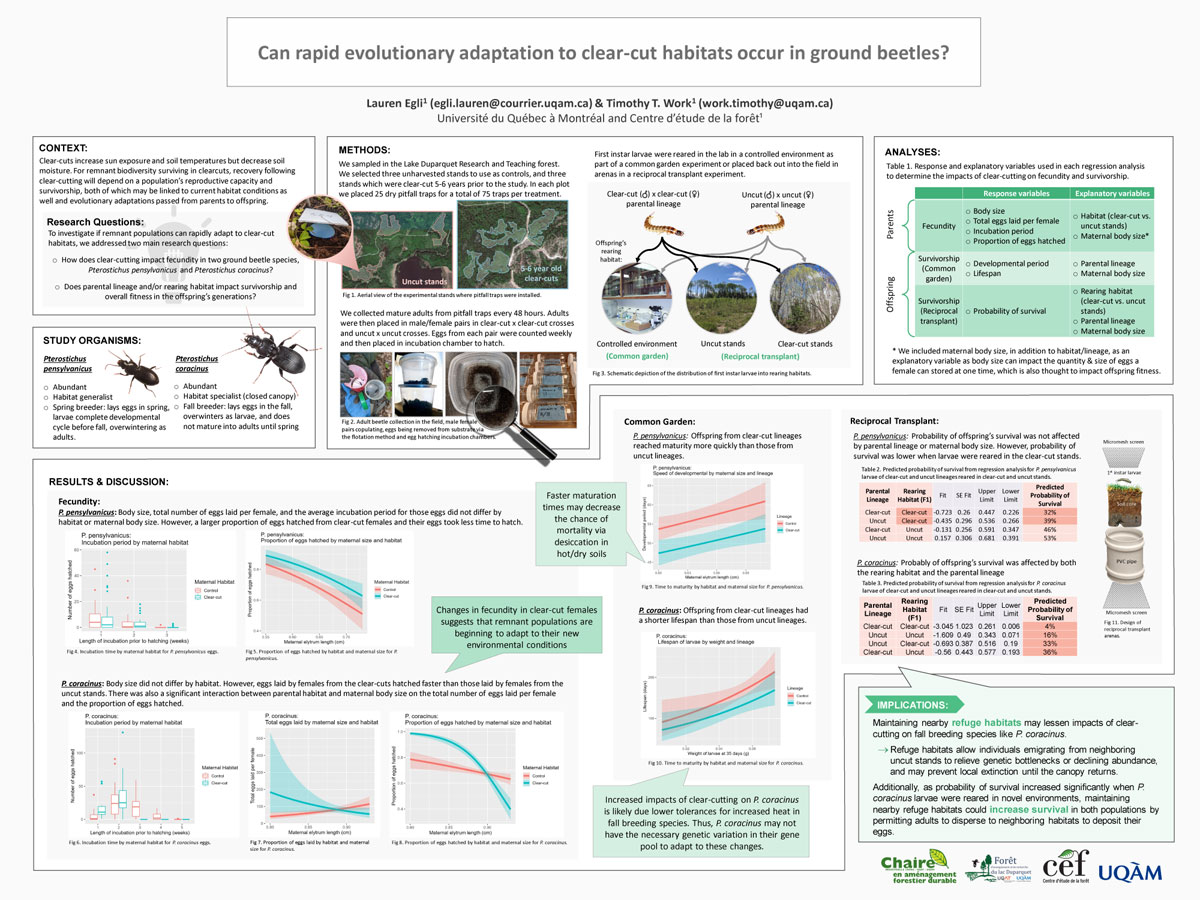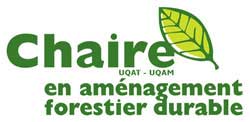
Although I grew up in Pennsylvania, I completed my B.Sc at the University of British Columbia in Vancouver BC. While in university, I completed several summer internships rehabbing injured wildlife, and even one season working in Idaho with wolves! After I completed my B.Sc, I worked with the National Ecological Observatory Network (NEON) in Colorado for four years. During that time, I transitioned from working with mammals to studying insects. From there I moved to a master's program at UQAM and then completed a direct transfer up into my current PhD program. When I am not working, I love to cook, read, run and play with my dogs.
My project:
Species recovery following harvesting will depend on life history traits including fecundity and survivorship. If these traits are heritable, post-harvest recovery of remnant populations within marginal habitats would benefit from interbreeding with individuals with greater fitness. Over longer time frames, this could contribute to ‘evolutionary rescue’ which may help populations adapt to larger stressors such as climate change. We tested whether fecundity and survivorship differed in the F1 generation of two ground beetle species, Pterostichus pensylvanicus and Pterostichus coracinus, in both clearcuts and uncut forests when parental lineages were restricted to parents drawn from clearcuts or from uncut stands. F1 larvae from both lineages were placed in arenas in either clearcuts or uncut stands and fed ad libitum. As a control, F1 larvae with restricted parental lines were also reared in the laboratory. Fecundity and survivorship did not differ by habitat or lineage for P. pensylvanicus. However, we observed significant habitat x lineage interactions on fecundity and survival in P. coracinus. Survivorship of P. coracinus larvae from clearcut lineages was 4% in clearcuts and 36% in uncut stands. Survivorship of P. coracinus larvae from uncut lineages was 33% in clearcuts but 16% in uncut stands. In the lab, P. coracinus eggs from uncut lineages took longer to hatch than eggs from clearcut lineages. Progeny from uncut lineages also lived longer than progeny from clearcut lineages. Overall, survivorship of P. coracinus increased when progeny was reared in novel habitats. Additionally, when habitat was controlled, P. coracinus progeny from uncut lineages had increased fitness.
